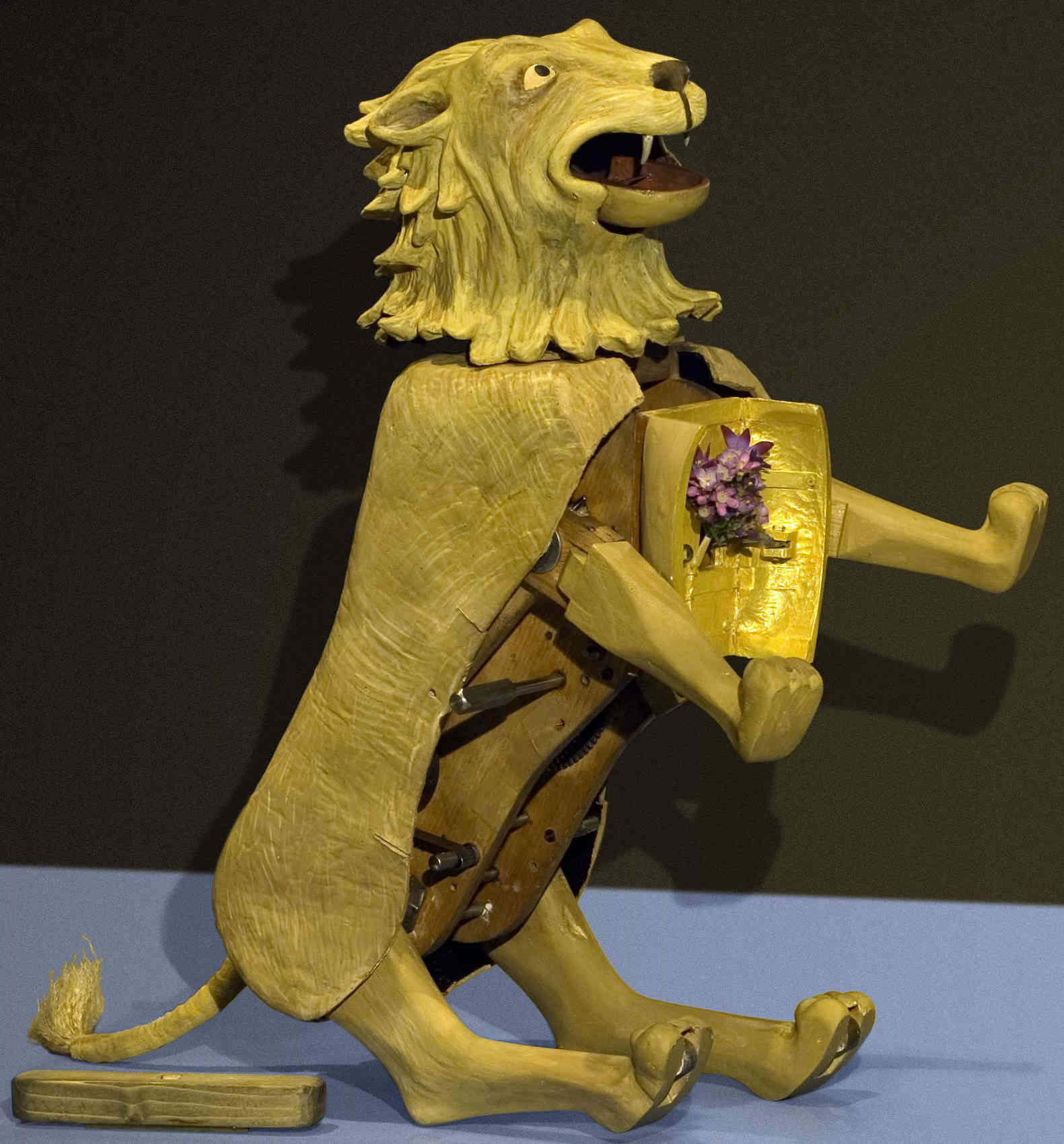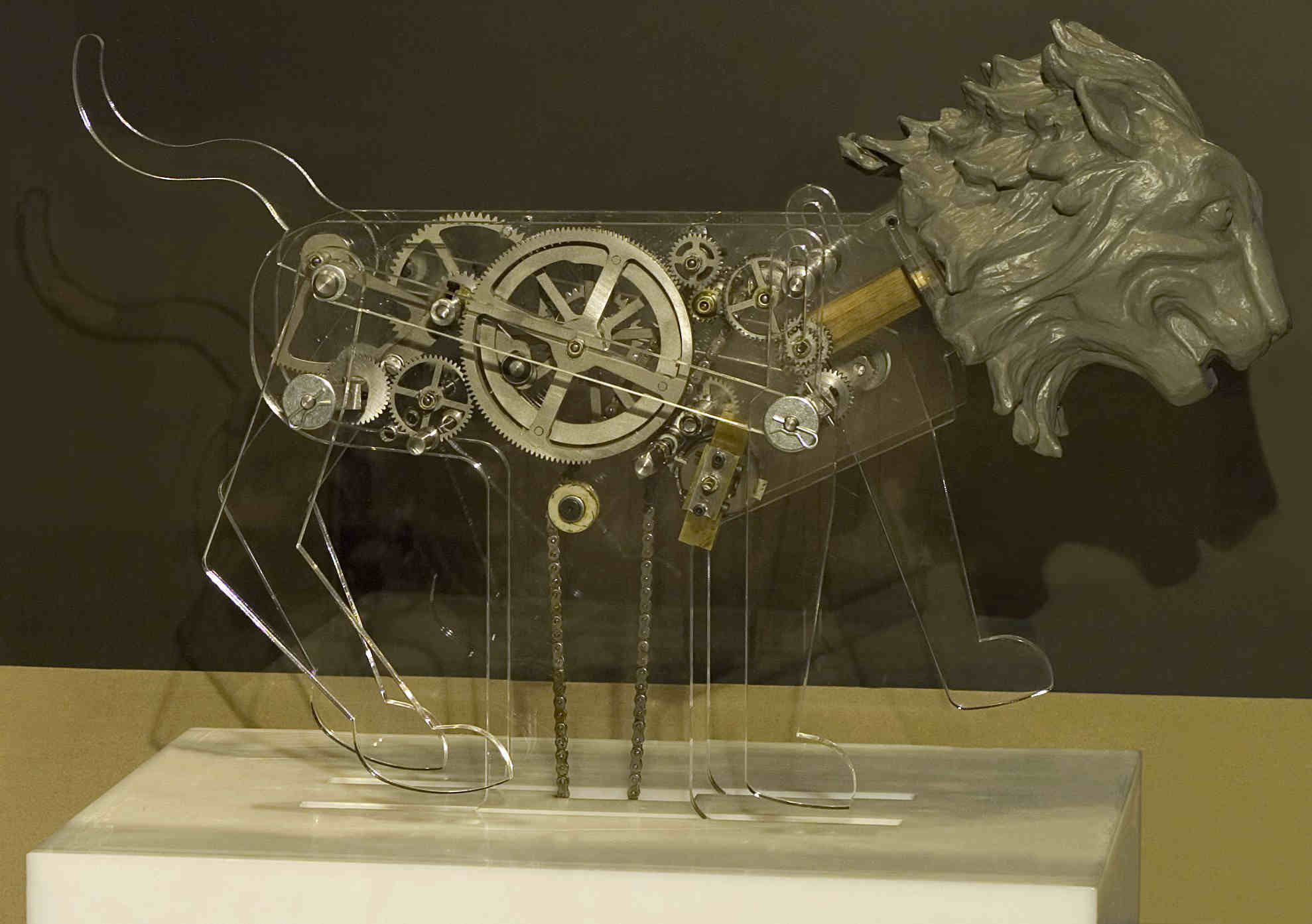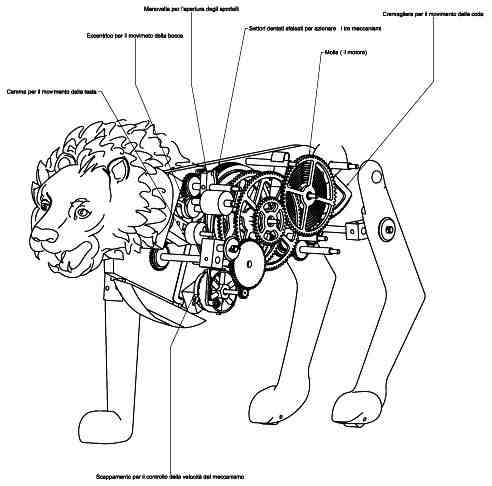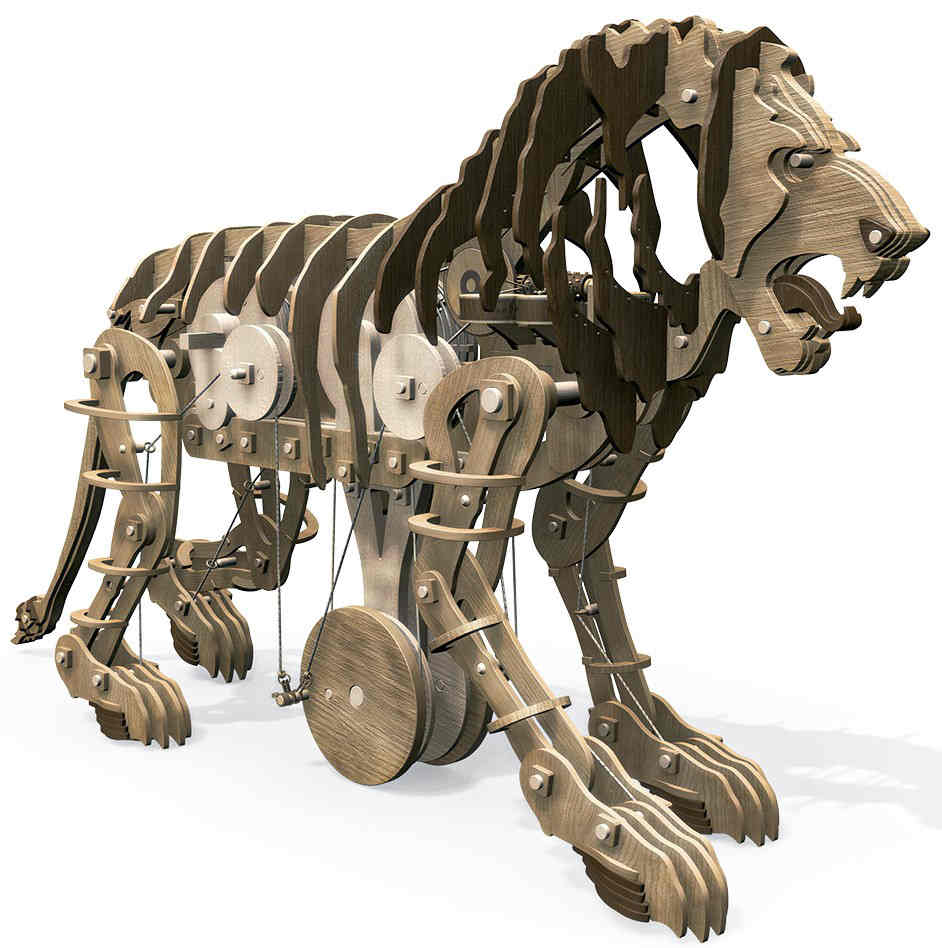Communications of the ACM
Leonardo da Vinci's Robot Lion

In 2019, we are celebrating the 500th anniversary of Leonardo's da Vinci's death. For four months, from 24 October 2019 to 24 February 2020, the Louvre Museum in Paris honors the Renaissance painter in a major exhibition.
Da Vinci was not only an artist, but also an engineer. His models can be found in Italy (Florence 1, Florence 2, Milan 1, Milan 2, Vinci), France (Amboise) and the U.S.A. (New York).
The polymath also designed several robots: a mechanical knight (1495), a mechanical lion (1515) and a self-propelled cart (1478). Of these, he actually built at least the artificial animal (see Figures 1–5). A single spring controlled several movements. The animal took a few steps, sat on its hind legs and moved its tail. Then the lion opened its chest and showed a bouquet of flowers. Lilies adorned the Medici coats of arms. Leonardo is said to have developed the artificial creature for the visit of the French king to Milan. Unfortunately, little is known about these mechanical automatons.
|
|
|
|
Fig. 1: Mechanical lion (1). |
|
|
|
|
|
Fig.2: Mechanical lion (2). |
|
|
|
|
|
Fig. 3: Mechanical lion (3). |
|
|
|
|
|
Fig. 4: Mechanical lion (4). |
|
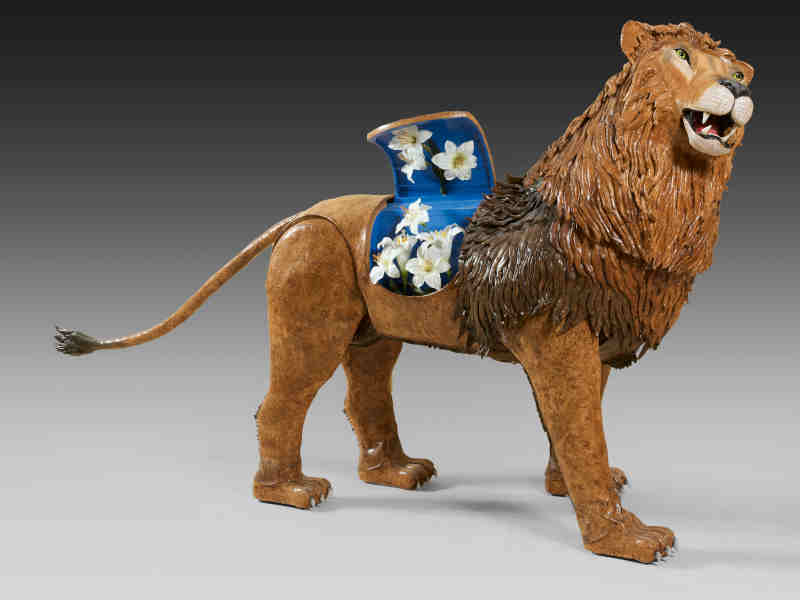
Fig. 5: Mechanical lion (5).
Leonardo da Vinci died in Amboise.
Credit: Château du Clos Lucé, Amboise
Further Reading
- Bruderer, H.: Meilensteine der Rechentechnik, De Gruyter Oldenbourg, Berlin/Boston, 2nd edition 2018, 2 volumes, 1600 pages, https://www.degruyter.com/view/product/480555, https://www.degruyter.com/view/product/503373
- Bruderer, H.: Milestones in analog and digital computing, Springer Nature Switzerland AG, Cham, 3rd edition 2020, 2 volumes, 2000 pages
- Campioni, R. (Hg.): Leonardo artista delle macchine e cartografo, Giunti gruppo editoriale, Florence 1994
- Capra, F.: The science of Leonardo, Doubleday Broadway Publishing Group, New York 2007
- Cianchi, M.: Le macchine di Leonardo, Becocci editore, Florence 1981
- Galluzzi, Paolo (Hg.): Leonardo da Vinci, engineer and architect, The Montreal Museum of Fine Arts, Montreal 1987
- Lisa, M.; Taddei, M., and Zanon, E. (eds.): Leonardo dreidimensional, Chr. Belser AG für Verlagsgeschäfte & Co. KG, Stuttgart 2009
- Nanni, R.: Leonardo and the artes mechanicae, Skira editore, Milan 2013
- Rosheim, M. E.: Leonardo's lost robots, Springer-Verlag, Berlin, Heidelberg 2006
- Taddei, M.: Leonardo dreidimensional. Neue Roboter und Maschinen, Chr. Belser AG für Verlagsgeschäfte & Co. KG, Stuttgart 2008
- Taddei, M., Zanon, E. (eds.): Leonardos Maschinen. In der Werkstatt des genialen Erfinders, Theiss Verlag, Darmstadt 2017
- Taddei, M.; Zanon, E.; Laurenza, D.: Leonardo dreidimensional. Mit Computergrafik auf der Spur des genialen Erfinders, Chr. Belser AG für Verlagsgeschäfte & Co. KG, Stuttgart 2006
- Taglialagamba, S.: Leonardo & l'ingegneria, CB edizioni [Cartei & Bianchi], Poggio a Caiano (Prato) 2010
- Taglialagamba, S.: Leonardo & engineering, CB edizioni [Cartei & Bianchi], Poggio a Caiano (Prato), 2010
- Taglialagamba, S.: Leonardo da Vinci. Automazioni e robotica/Automations and robotics, CB edizioni [Cartei & Bianchi], Poggio a Caiano (Prato), 2010
Herbert Bruderer is a retired lecturer in didactics of computer science at ETH Zürich. More recently, he has been an historian of technology. [email protected], herbert.bruderer@bluewin.
No entries found
